new posts in all blogs
Viewing: Blog Posts Tagged with: Jeopardy, Most Recent at Top [Help]
Results 1 - 7 of 7
How to use this Page
You are viewing the most recent posts tagged with the words: Jeopardy in the JacketFlap blog reader. What is a tag? Think of a tag as a keyword or category label. Tags can both help you find posts on JacketFlap.com as well as provide an easy way for you to "remember" and classify posts for later recall. Try adding a tag yourself by clicking "Add a tag" below a post's header. Scroll down through the list of Recent Posts in the left column and click on a post title that sounds interesting. You can view all posts from a specific blog by clicking the Blog name in the right column, or you can click a 'More Posts from this Blog' link in any individual post.
In 2011, one of the clues on Jeopardy was "The National Museum of the American Indian." None of the contestants selected a clue in that category until they had no choice:
NMAI (the National Museum of the American Indian) made a
video of that episode. The image (above) is from their video.
On April 12, 2016, "Native Americans" was the category. Just like in 2011, contestants avoided it.
Martie Simmons, snapped a photograph of it and put the photograph on Twitter and on Facebook. It is circulating widely in Native social media (a shout out to Martie for letting me use her photo):
One of the contestants responded to her:
What does this avoidance point to? Fear of saying the wrong thing? Or, fear of their ignorance being on national TV? Or, fear of answering the question wrong and hurting their chance of winning?
The
same thing happened in February of 2014, too. The category then was African American History:
This avoidance is, to say the least, disappointing.
Frank Waln, a hip hop artist from the Rosebud Reservation responded to it, too, on Twitter. He said:
"This [is] what 100s [of] years of erasure and colonial propaganda masquerading as history does."
If you missed his interview on NPR's
here & now on April 6, 2016, listen to it and his music, too.
Teachers and librarians: this points to a huge gap. Our job is clear. Start with getting
books written by Native writers.
The ALIENS have landed!
"amusing. . .engaging, accessible," says Publisher's Weekly
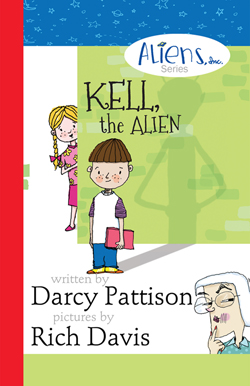 |
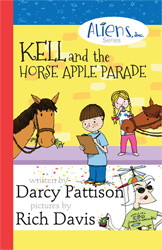 |
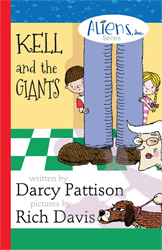 |
In your story or novel, something must go wrong.
Without conflict, there is no story. As you develop a plot, it’s helpful to think about what is the worst thing that could happen and then figure out if you can make that even worse?
The absolute worst thing–the thing your character fears most of all–MUST happen in the climax of the story. That’s good plotting and storytelling. Building up to that point, you should have a series of conflicts that deepen, that reach out into every aspect of your character’s life, that affects friends, family, or even the survival of the planet or the human species. The series should have a logical progression from bad to worse to worst.
Up the stakes. On way to escalate the conflict is to up the stakes by answering the “So-What?” question. This bad thing is going to happen. So what? Who cares? Who will it affect? How badly will it affect them? When the answer is that the worst thing will affect the most people, you have the stakes well in hand.
Up the emotions. However, even for stories with the fate of the world in the balance are boring if the reader doesn’t care. This means you must provide a wide range of emotions for your characters from the most ardent love to the deepest sorrow. How can I make my character laugh? What would wrench his/her heart? What is the deepest emotion possible in your story? Create that emotional impact. Then take it one level deeper.
Sacrifice. Characters who stupidly volunteer for kitchen duty aren’t sympathetic; they are stupid. However, a reluctant hero who only volunteers to save a loved one–that creates empathy. In HUNGER GAMES, Katniss volunteers to join the Hunger Games so that her younger sister won’t have to. This willingness to sacrifice herself for a loved one elevates here–and the ensuing conflict to new heights.
Jeopardy. When a character is in jeopardy–danger is looming and drawing nearer by the second–readers are on the edge of their seats. Violence, just for the sake of violence, does little to create the emotions needed. Instead, a character must be in danger and must stay in danger for a long time. When I first watched the movie, ALIEN, my stomach hurt because I was so scared. That’s jeopardy. The aliens were coming–and the movie drew out that suspense and jeopardy forever!

This marine is in jeopardy!


By: Lauren,
on 9/24/2010
Blog:
OUPblog
(
Login to Add to MyJacketFlap)
JacketFlap tags:
ben daniels band,
benjamin kabak,
charles komanoff,
david barash,
geek out,
gelf magazine,
george goethels,
scott allison,
second avenue sagas,
vincent valk,
podcast,
Sociology,
heroes,
A-Featured,
Lexicography,
A-Editor's Picks,
Psychology,
jeopardy,
geeks,
Jesse Sheidlower,
Naked City,
Sharon Zukin,
mta,
The Oxford Comment,
oxford comment,
naked,
jesse,
sheidlower,
lipton,
barash,
judith,
Add a tag
In the second episode of The Oxford Comment, Lauren Appelwick and Michelle Rafferty celebrate geekdom! They interview a Jeopardy champion, talk sex & attraction with a cockatoo, discover what makes an underdog a hero, and “geek out” with some locals.
Subscribe and review this podcast on iTunes!
Featured in this podcast:
Jesse Sheidlower, Editor-at-Large (North America) of the Oxford English Dictionary, author of The F-Word

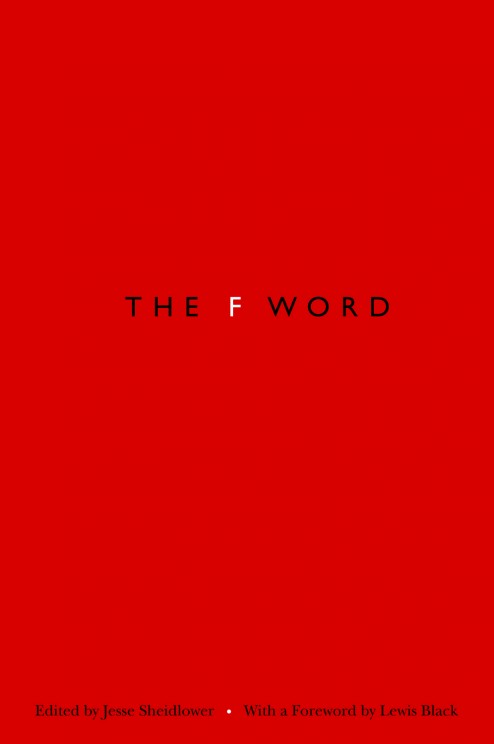
* * * * *
Matt Caporaletti, “Advertising Account Supervisor from Westwood, NJ,” Jeopardy champion

* * * * *
David P. Barash and Judith Lipton authors of Payback: Why We Retaliate, Redirect Aggression, and Take Our Revenge

* * * * *
Scott T. Allison and George R. “Al” Goethels, authors of Heroes: What They Do and Why We Need Them. Check out their heroes blog!
By:
Reader Mom,
on 3/11/2010
Blog:
Read to Me!
(
Login to Add to MyJacketFlap)
JacketFlap tags:
animated features,
Trivial Pursuit,
movies,
reading,
Disney,
giraffes,
trivia,
toddler,
Jeopardy,
Add a tag
 Trivia fascinates me. I compulsively collect bits of data and useless information. When it comes to finding the paperwork for the car registration, I’m clueless. However, if you ever need a piece of Trivial Pursuit pie or the question to an answer that will only appear on Jeopardy, I can probably help you. One area where I’ve found the greatest minutiae-based achievement is that of Disney movies. I know every song lyric, most dialogue, and enough back story details to make my own special features DVD. So pronounced is the fixation that I even wrote my Master’s thesis on the “narrative elements of the Quest story as presented in Disney animated features.” No kidding. And one of the best things about Disney animation is the animals-and-things-that-seem-like people anthropomorphism. The scissor-wielding mice from Cinderella amuse me and the randy candlestick from Beauty and the Beast is an eye-rolling favorite. But t
Trivia fascinates me. I compulsively collect bits of data and useless information. When it comes to finding the paperwork for the car registration, I’m clueless. However, if you ever need a piece of Trivial Pursuit pie or the question to an answer that will only appear on Jeopardy, I can probably help you. One area where I’ve found the greatest minutiae-based achievement is that of Disney movies. I know every song lyric, most dialogue, and enough back story details to make my own special features DVD. So pronounced is the fixation that I even wrote my Master’s thesis on the “narrative elements of the Quest story as presented in Disney animated features.” No kidding. And one of the best things about Disney animation is the animals-and-things-that-seem-like people anthropomorphism. The scissor-wielding mice from Cinderella amuse me and the randy candlestick from Beauty and the Beast is an eye-rolling favorite. But t he most swoon-worthy character of all is that sly fox, Robin Hood. His skill with the bow, dry wit, British accent and noble cause make my heart flutter. This technique is so engaging that, at times, it is easy to forget what you’re watching is truly impossible. The same thing happens in Kidsbooks’ The Giraffe Numbers Book when a whole tower (the honest-to-goodness name for a group of giraffes) of the long-necked set do some really people-y things like sun bathing and riding in limousines. I draw the line at “put toys on the shelf,” though--most humans don’t even do that.
he most swoon-worthy character of all is that sly fox, Robin Hood. His skill with the bow, dry wit, British accent and noble cause make my heart flutter. This technique is so engaging that, at times, it is easy to forget what you’re watching is truly impossible. The same thing happens in Kidsbooks’ The Giraffe Numbers Book when a whole tower (the honest-to-goodness name for a group of giraffes) of the long-necked set do some really people-y things like sun bathing and riding in limousines. I draw the line at “put toys on the shelf,” though--most humans don’t even do that.
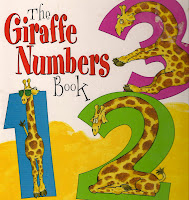
Posted on 8/11/2009
Blog:
Time Machine, Three Trips: Where Would You Go?
(
Login to Add to MyJacketFlap)
JacketFlap tags:
Jeopardy,
learn medical words,
medical game,
Medical terminology,
Medical words,
Physician,
Sanskrit,
Understanding Medficine,
Quizzes,
doctor,
greek,
medicine,
latin,
indo-European,
Add a tag

Image via Wikipedia
What do a wheel rut, a flash of lightning and a dining table have in common?
Medical Terminology. Ever think about how a doctor in New York can speak to a doctor in Japan about medical matters. They use the same medical words. I found this fascinating, and hope you will, as well.
I’m also a Jeopardy fan. For those of you unfamiliar with this TV format, a contestant is presented with the answer, and must deliver the definition to win a prize.
So…..here it is. It’s a medical jeopardy. Here are 127 questions.
If you’re in the medical or health care field, chances are you’ll have no trouble with most of these, The object here is to present to you the oddities of linguistic evolution.
WARNING: DO NOT USE THE MATIERIAL IN THIS ARTICLE AS PRIMARY SOURCE MATERIAL (although you might be tempted). This is simply because much of what is known about language derivatives is assumed - not fact.*
Answers are presented on the last page.
1. FINE POWDER: from the Arabic “al” (the) and koh l “fine impalpable powder.”
2. RUT MADE BY A WHEEL: From the Latin, “orbita.”
3. TO MAKE STICKY: From the Latin, “viscare.”
4. PERTAINING TO THE FORUM: From the Latin “forum.”
5. CAUSE OF DWARFISM: Long bones do not grow. From Greek “a” absence, “chondrus” (cartilage) and “plassein” (to form).
6. BULK OR MASS; From the Greek, “ongkos.”
7. TO INCREASE: From the Indo-European, “aweg.”
8. INSENSITIVITY TO PAIN: from the Greek “an” (without) and algesis (sense of
pain).
9. KNOT or KNOB: From the Latin, “nodus.”
10. AN AIR DUCT: From the Greek “aer” (air) and “tereo” (I keep).
11. NOSE or SNOUT: From the Greek, “mukter.”
12. A SHEPHERD’S PIPE: From the Greek, “syringx.”
13. DULL TO PERCEPTION: from the Indo-European root, “dheubh,”
14. ONE-HALF OF THE SKULL: From the Latin, “hemicrania.”
15. LIKE A STRAIGHT SWORD: From the Greek, “xiphos.”
16. TO BLOCK or PLUG: From the Latin, “obsterix.”
17. TO BOIL OUT: From the Greek, “ek-“ (out) and “zeein” (to boil).
18. CRECENT-SHAPED: From the Greek, “meniskos.”
19. A PRICK OR PUNCTURE BY A NEEDLE: from the Latin “acus” (needle) and
“punctum” puncture.
20. FLASH OF LIGHTNING: From the Latin, “fulgor.”
21. BREAST-LIKE: From the Greek, “mastos” and “eidos.”
22. THORN or PRICKLY BUSH: From the Latin, “spina.”
23. PRODUCE OR BRING FORTH: From the Greek, “gennao.”
24. ONE WHO HEALS: From the Anglo-Saxon, “laece.”
25. DRY, ACRID: From the Indo-European, “ters.”
26. TRANSPARANT STONE or CRYSTAL: From the Greek, “hyalos.”
27. CHEW: From the Anglos-Saxon, “ceowan.” (noun)
28. LIGHT GREENISH-YELLOW: From the Latin, “galbinus.”
29. WITHOUT WEIGHT or LIGHT: From the Sanskrit, “ laghu.:”
30. A CUTTING UP: from the Greek “ana” (up or through) and “tome” (a cutting).
31. GATEKEEPER: From the Greek, pyle.”
32. A COVERLET or CLOAK: From the Latin, “pallium.”
33. MINT: From the Latin, “menthe.”
34. WITHOUT A NAME: From the Latin, “innominatus.”
35. A DINING TABLE: From the Greek, “trapeze.”
36. CENTER OF WHEEL HUB: From the Anglo-Saxon, “ nafe.”
37. A TRENCH OR ABYSS: From the Old English, “grynde.”
38. AN OFFSHOOT: from the Greek “apo” (from) and “physis” (growth).
39. ATTACK or INJURY: From the Latin, “laesia.”
40. SERVICE or ATTENDANCE: From the Greek, “therapeia.”
41. BELONGING TO A WALL: From the Latin, “parietalis.”
42. SEEING FOR ONESELF: from the Greek “auto” and “opsis” (seeing).
43. JUICE, SAP, RESIN OR GUM OF A TREE: From the Greek, “opos.”
44. SILVERY SWELLING: From the Greek, “glaukos” and “oma.”
45. TO STRETCH: From the Greek , “teinein.”
46. TO DISGRACE, TO FALL SHORT OF: from the Latin “degenerare.”
47. PIMPLE: From the Greek, “pomphos.”
48. A NUT OR ACORN: From the Latin. “glandulus.”
49. TO SCRAPE OR SCRATCH: From the Latin, “radere.”
50. LARGE STONE IN FRONT OF DOOR TO KEEP IT SHUT:
From the Greek, “thyreos.”
51. FLAME OR HEAT: From the Greek, “phlegma.”
52. PAUNCH or BELLY: From the Greek, “gaster.”
53. FUNNEL: From the Latin, “infundere.”
54. YOKE CONNECTING TWO ANIMALS: From the Greek, “zygon.”
55. TO PLEASE: From the Latin, “placere.”
56. TO BEND OR TURN: From the Latin, “flectere.”
57. EARTH OR LAND: From the Latin, “humus.”
58. HEALING OINTMENT: From the Anglo-Saxon, “sealf.”
59. TO SEND FLUID IN: From the Greek, “en” (in) and “ienai” (to send).
60. TO DYE, STAIN, CORRUPT or BOIL: From the Latin, “inficere.”
61. A PRUNING: from the Latin “amputatio.”
62. WORKING WITH THE HANDS: From the Greek, “ cheirourgia.”
63. A FLOWING SEED: From the Greek, :”gone” and “rheos.”
64. RELATING TO THE SPHINX
65. HOLY or CONSECRATED: From the Latin, “Sacer.”
66. TWELVE FINGERS: from the Greek, “dodek-daktulon.
67. STIFF or STRONG: From the Anglo-Saxon, “stark.”
68. A COCK’S SPUR: From the old French, “argot” (rye plant infected by fungus.”
69. AFFLICTED WITH SPOTS: From the Old High German, “masa” and
Middle English, “mesel.”
70. TO BE ASHAMED: From the Latin, “pudere.”
71. TO WIND OR CURVE: From the Latin, “sinuare.”
72. A CIRCULAR OR FLAT STONE: From the Greek, “discos.”
73. PAIR OF FOLDING or DOUBLE DOORS: From the Latin, “valvae.”
74. A TURBAN: From the Latin, “mitra.”
75. LACK OF NOURISHMENT: from the Greek “a-“ (without) and trophe
(nourishment).
76. FORTY: From the Latin, “quadraginta.”
77. MASS OF MOLTEN IRON: From the Latin, “strictura.”
78. A STING OR ITCH: From the Latin, “urtica.”
79. TO TEACH: from the Latin, “docere.”
80. TO SWELL or RIPEN: From the Greek, “ orgainein.”
81. TO TAKE AWAY COLOR: From the Old French, “desteindre.”
82. WITHOUT PULSE: from the Greek “a” (without) and “sphyxis” (pulse).
83. CORRUPT MATTER: From the Greek, “Pyon.”
84. LIE ON OR BROOD: From the Latin, “incubare.”
85. LOVE, HONOR, DESIRE: From the Sanskrit, “wan” and “van.”
86. MORE, SHIFT, CHANGE or ALTER: From the Latin, “mutare.”
87. TO APPRAISE: From the Latin, “taxare.”
88. OPEN SPACE, COURTYARD OR PARK: From the Latin “area.”
89. POUCH: From the Norman French, “poque.”
90. A TAILOR: From the Latin, “sartor.”
91. WALKING HOSPITAL: from the French “hopital ambulant.”
92. BARK OF A TREE: From the Peruvian Indian, “kina.”
93. LITTLE BEAK: From the Anglo-Saxon, “nib.”
94. TO WEAVE: From the Latin,”textere.”
95. BOWL or SHELL: From the Nordic, “Skal.”
96. RUPTURE or HERNIA: From the Greek, “kele.”
97. TO ROLL OR TURN AROUND: From the Latin, “volvere.”
98. A BLOW OR STROKE: From the Latin, “ plege.”
99. SORE THROAT: from the Latin “angere” (to choke or throttle).
100. LITTLE BALL: From the Latin, “pilula.”
101. POUCH OF LEATHER: From the Latin, “scorteus.”
102. WHORL, EDDY or TORNADO: From the Latin, “Turbo.”
103. CLEAR WATER: From the Latin, “lympha.”
104. LITTLE NET: From the Latin, “rete.”
105 ANYTHING SCOOPED OUT: From the Greek, “skaphe.”
106. ROUGH: From the Greek, “traxus.”
107. LOSS OF MEMORY: from the Greek “a” (without) and “mensis” (memory).
108. A SQUEAKING: From the Greek, “trismos.”
109. A COOKING: From the Latin, “pepsis.”
110. UNCUT or INDIVISIBLE: from the Greek “a-“ (without) and “temnein” (to cut).
111. PEAR-SHAPED: From the Latin, “pirum” and “forma.”
112. A HOOK: From the Latin,”uncus.”
113. DIFFERENT WORK: from the Greek “allo” (other or different) and “ergon (work).
114. SEAT OF REASON OR PASSION: From the Greek, “phren.”
115. TO WRING OUT: From the Old French,”expraindre.”
116. A FOOTPRINT: From the Latin, “vestigium.”
117. BLADDER or BAG: From the Latin, “vesiculum.”
118. SMALL ENDOCRINE GLANDS ON KIDNEYS: from the Latin “ad” (toward) and
“renes” kidneys.
119. A POUNDER: From the Latin, “pistillum.”
120. TO ACCUSTOM: From the Anglo-Saxon, “wenian.”
121. TUB or TROUGH: From the Greek, “pyelos.”
122. ARTICULATION OF ULNA AND HUMERUS: A punster’s definition.
123. PERTAINING TO NATURAL LAW: From the Greek, “physikos.”
124. THE TASTE OF ACID: from the Latin “acidus” (sour, tart).
125: A PUSH OR IMPULSE: From the Greek, “osmos.”
126. SPROUT, BUD or OFFSHOOT: From the Latin, “germen.”
127. A COW: From the Latin, “vacca.”
*Thanks to:
Stedman’s Medical Dictionary , 26th Edition
Dorland’s Illustrated Medical Dictionary, 24th Edition
Gray’s Anatomy (any library edition).
The Language of Medicine, 4th edition, Davi-Ellen Chabner
Medical Meanings, Harcourt Brace Jovanovich, 1984
—————————————————————————————————————-
1. Alcohol2. Orbit
3. Viscus
4. Forensic
5. Achondroplasia
6. Oncology
7. Waist
8. Analgesia
9. Node
10. Artery
11. Mucus
12. Syringe
13. Deaf
14. Migraine
15. Xyphoid
16. Obstetrics
17. Eczema
18. Meniscus
19. Acupuncture
20. Fulguration
21. Mastoid
22. Spine
23. Gene
24. Leech
25. Thirst
26. Hyaline
27. Jaw.
28. Jaundice
29. Lung
30. Anatomy
31. Pylorus
32. Palliate
33. Menthol
34. Innominate
35. Trapezius
36. Navel
37. Gum
38. Apophysis
39. Lesion
40. Therapy
41. Parietal
42. Autopsy
43. Opium
44. Glaucoma
45. Tendon
46. Degenerate
47. Papule
48. Gland
49. Rash
50. Thyroid
51.Phlegm
52. Gastric
53. Infindibulum.
54. Zygomatic
55. Placebo
56. Flex
57.. Human
58. Salve
59. Enema
60. Inflammation.
61. Amputation
62. Surgery
63. Gonorrhea
64. Sphincter (interesting story)
65. Sacrum
66. Duodenum
67. Starch
68. Ergot
69. Measles
70. Pudenda
71. Sinus
72. Disc
73. Valve
74. Mitral
75. Atrophy
76. Quarantine
77. Stricture
78. Urticaria.
79. Doctor
80. Orgasm
81. Stain
82. Asphyxia
83. Pus
84. Incubate
85. Venereal/Venus
86. Mutate
87. Taste
88. Areola
89. Pox
90. Sartorius
97. Ambulance
92. Quinine
93. Nipple
94. Tissue
95. Skull.
96. Keloid.
97. Vulva
98. Plague
99. Angina
100. Pill
101. Scrotum
102. Turbinate.
103. Lymph
104. Reticulum
105. Scaphoid
106. Trachea
107. Amnesia
108. Trismus
109. Pepsin
110. Atom
111. Piriform
112. Uncinate/unciform
113. Allergy
114. Phrenic
115. Sprain
116. Vestige
117. Vesicle
118. Adrenal
119. Pestle
120. Wean
121. Pelvis
122. Funny Bone (gotcha!)
123. Physician/physics
124. Acrid
125. Osmosis
126. Germ
127. Vaccine

Posted on 8/11/2009
Blog:
Time Machine, Three Trips: Where Would You Go?
(
Login to Add to MyJacketFlap)
JacketFlap tags:
Jeopardy,
learn medical words,
medical game,
Medical terminology,
Medical words,
Physician,
Sanskrit,
Understanding Medficine,
Quizzes,
doctor,
greek,
medicine,
latin,
indo-European,
Add a tag

Image via Wikipedia
What do a wheel rut, a flash of lightning and a dining table have in common?
Medical Terminology. Ever think about how a doctor in New York can speak to a doctor in Japan about medical matters. They use the same medical words. I found this fascinating, and hope you will, as well.
I’m also a Jeopardy fan. For those of you unfamiliar with this TV format, a contestant is presented with the answer, and must deliver the definition to win a prize.
So…..here it is. It’s a medical jeopardy. Here are 127 questions.
If you’re in the medical or health care field, chances are you’ll have no trouble with most of these, The object here is to present to you the oddities of linguistic evolution.
WARNING: DO NOT USE THE MATIERIAL IN THIS ARTICLE AS PRIMARY SOURCE MATERIAL (although you might be tempted). This is simply because much of what is known about language derivatives is assumed - not fact.*
Answers are presented on the last page.
1. FINE POWDER: from the Arabic “al” (the) and koh l “fine impalpable powder.”
2. RUT MADE BY A WHEEL: From the Latin, “orbita.”
3. TO MAKE STICKY: From the Latin, “viscare.”
4. PERTAINING TO THE FORUM: From the Latin “forum.”
5. CAUSE OF DWARFISM: Long bones do not grow. From Greek “a” absence, “chondrus” (cartilage) and “plassein” (to form).
6. BULK OR MASS; From the Greek, “ongkos.”
7. TO INCREASE: From the Indo-European, “aweg.”
8. INSENSITIVITY TO PAIN: from the Greek “an” (without) and algesis (sense of
pain).
9. KNOT or KNOB: From the Latin, “nodus.”
10. AN AIR DUCT: From the Greek “aer” (air) and “tereo” (I keep).
11. NOSE or SNOUT: From the Greek, “mukter.”
12. A SHEPHERD’S PIPE: From the Greek, “syringx.”
13. DULL TO PERCEPTION: from the Indo-European root, “dheubh,”
14. ONE-HALF OF THE SKULL: From the Latin, “hemicrania.”
15. LIKE A STRAIGHT SWORD: From the Greek, “xiphos.”
16. TO BLOCK or PLUG: From the Latin, “obsterix.”
17. TO BOIL OUT: From the Greek, “ek-“ (out) and “zeein” (to boil).
18. CRECENT-SHAPED: From the Greek, “meniskos.”
19. A PRICK OR PUNCTURE BY A NEEDLE: from the Latin “acus” (needle) and
“punctum” puncture.
20. FLASH OF LIGHTNING: From the Latin, “fulgor.”
21. BREAST-LIKE: From the Greek, “mastos” and “eidos.”
22. THORN or PRICKLY BUSH: From the Latin, “spina.”
23. PRODUCE OR BRING FORTH: From the Greek, “gennao.”
24. ONE WHO HEALS: From the Anglo-Saxon, “laece.”
25. DRY, ACRID: From the Indo-European, “ters.”
26. TRANSPARANT STONE or CRYSTAL: From the Greek, “hyalos.”
27. CHEW: From the Anglos-Saxon, “ceowan.” (noun)
28. LIGHT GREENISH-YELLOW: From the Latin, “galbinus.”
29. WITHOUT WEIGHT or LIGHT: From the Sanskrit, “ laghu.:”
30. A CUTTING UP: from the Greek “ana” (up or through) and “tome” (a cutting).
31. GATEKEEPER: From the Greek, pyle.”
32. A COVERLET or CLOAK: From the Latin, “pallium.”
33. MINT: From the Latin, “menthe.”
34. WITHOUT A NAME: From the Latin, “innominatus.”
35. A DINING TABLE: From the Greek, “trapeze.”
36. CENTER OF WHEEL HUB: From the Anglo-Saxon, “ nafe.”
37. A TRENCH OR ABYSS: From the Old English, “grynde.”
38. AN OFFSHOOT: from the Greek “apo” (from) and “physis” (growth).
39. ATTACK or INJURY: From the Latin, “laesia.”
40. SERVICE or ATTENDANCE: From the Greek, “therapeia.”
41. BELONGING TO A WALL: From the Latin, “parietalis.”
42. SEEING FOR ONESELF: from the Greek “auto” and “opsis” (seeing).
43. JUICE, SAP, RESIN OR GUM OF A TREE: From the Greek, “opos.”
44. SILVERY SWELLING: From the Greek, “glaukos” and “oma.”
45. TO STRETCH: From the Greek , “teinein.”
46. TO DISGRACE, TO FALL SHORT OF: from the Latin “degenerare.”
47. PIMPLE: From the Greek, “pomphos.”
48. A NUT OR ACORN: From the Latin. “glandulus.”
49. TO SCRAPE OR SCRATCH: From the Latin, “radere.”
50. LARGE STONE IN FRONT OF DOOR TO KEEP IT SHUT:
From the Greek, “thyreos.”
51. FLAME OR HEAT: From the Greek, “phlegma.”
52. PAUNCH or BELLY: From the Greek, “gaster.”
53. FUNNEL: From the Latin, “infundere.”
54. YOKE CONNECTING TWO ANIMALS: From the Greek, “zygon.”
55. TO PLEASE: From the Latin, “placere.”
56. TO BEND OR TURN: From the Latin, “flectere.”
57. EARTH OR LAND: From the Latin, “humus.”
58. HEALING OINTMENT: From the Anglo-Saxon, “sealf.”
59. TO SEND FLUID IN: From the Greek, “en” (in) and “ienai” (to send).
60. TO DYE, STAIN, CORRUPT or BOIL: From the Latin, “inficere.”
61. A PRUNING: from the Latin “amputatio.”
62. WORKING WITH THE HANDS: From the Greek, “ cheirourgia.”
63. A FLOWING SEED: From the Greek, :”gone” and “rheos.”
64. RELATING TO THE SPHINX
65. HOLY or CONSECRATED: From the Latin, “Sacer.”
66. TWELVE FINGERS: from the Greek, “dodek-daktulon.
67. STIFF or STRONG: From the Anglo-Saxon, “stark.”
68. A COCK’S SPUR: From the old French, “argot” (rye plant infected by fungus.”
69. AFFLICTED WITH SPOTS: From the Old High German, “masa” and
Middle English, “mesel.”
70. TO BE ASHAMED: From the Latin, “pudere.”
71. TO WIND OR CURVE: From the Latin, “sinuare.”
72. A CIRCULAR OR FLAT STONE: From the Greek, “discos.”
73. PAIR OF FOLDING or DOUBLE DOORS: From the Latin, “valvae.”
74. A TURBAN: From the Latin, “mitra.”
75. LACK OF NOURISHMENT: from the Greek “a-“ (without) and trophe
(nourishment).
76. FORTY: From the Latin, “quadraginta.”
77. MASS OF MOLTEN IRON: From the Latin, “strictura.”
78. A STING OR ITCH: From the Latin, “urtica.”
79. TO TEACH: from the Latin, “docere.”
80. TO SWELL or RIPEN: From the Greek, “ orgainein.”
81. TO TAKE AWAY COLOR: From the Old French, “desteindre.”
82. WITHOUT PULSE: from the Greek “a” (without) and “sphyxis” (pulse).
83. CORRUPT MATTER: From the Greek, “Pyon.”
84. LIE ON OR BROOD: From the Latin, “incubare.”
85. LOVE, HONOR, DESIRE: From the Sanskrit, “wan” and “van.”
86. MORE, SHIFT, CHANGE or ALTER: From the Latin, “mutare.”
87. TO APPRAISE: From the Latin, “taxare.”
88. OPEN SPACE, COURTYARD OR PARK: From the Latin “area.”
89. POUCH: From the Norman French, “poque.”
90. A TAILOR: From the Latin, “sartor.”
91. WALKING HOSPITAL: from the French “hopital ambulant.”
92. BARK OF A TREE: From the Peruvian Indian, “kina.”
93. LITTLE BEAK: From the Anglo-Saxon, “nib.”
94. TO WEAVE: From the Latin,”textere.”
95. BOWL or SHELL: From the Nordic, “Skal.”
96. RUPTURE or HERNIA: From the Greek, “kele.”
97. TO ROLL OR TURN AROUND: From the Latin, “volvere.”
98. A BLOW OR STROKE: From the Latin, “ plege.”
99. SORE THROAT: from the Latin “angere” (to choke or throttle).
100. LITTLE BALL: From the Latin, “pilula.”
101. POUCH OF LEATHER: From the Latin, “scorteus.”
102. WHORL, EDDY or TORNADO: From the Latin, “Turbo.”
103. CLEAR WATER: From the Latin, “lympha.”
104. LITTLE NET: From the Latin, “rete.”
105 ANYTHING SCOOPED OUT: From the Greek, “skaphe.”
106. ROUGH: From the Greek, “traxus.”
107. LOSS OF MEMORY: from the Greek “a” (without) and “mensis” (memory).
108. A SQUEAKING: From the Greek, “trismos.”
109. A COOKING: From the Latin, “pepsis.”
110. UNCUT or INDIVISIBLE: from the Greek “a-“ (without) and “temnein” (to cut).
111. PEAR-SHAPED: From the Latin, “pirum” and “forma.”
112. A HOOK: From the Latin,”uncus.”
113. DIFFERENT WORK: from the Greek “allo” (other or different) and “ergon (work).
114. SEAT OF REASON OR PASSION: From the Greek, “phren.”
115. TO WRING OUT: From the Old French,”expraindre.”
116. A FOOTPRINT: From the Latin, “vestigium.”
117. BLADDER or BAG: From the Latin, “vesiculum.”
118. SMALL ENDOCRINE GLANDS ON KIDNEYS: from the Latin “ad” (toward) and
“renes” kidneys.
119. A POUNDER: From the Latin, “pistillum.”
120. TO ACCUSTOM: From the Anglo-Saxon, “wenian.”
121. TUB or TROUGH: From the Greek, “pyelos.”
122. ARTICULATION OF ULNA AND HUMERUS: A punster’s definition.
123. PERTAINING TO NATURAL LAW: From the Greek, “physikos.”
124. THE TASTE OF ACID: from the Latin “acidus” (sour, tart).
125: A PUSH OR IMPULSE: From the Greek, “osmos.”
126. SPROUT, BUD or OFFSHOOT: From the Latin, “germen.”
127. A COW: From the Latin, “vacca.”
*Thanks to:
Stedman’s Medical Dictionary , 26th Edition
Dorland’s Illustrated Medical Dictionary, 24th Edition
Gray’s Anatomy (any library edition).
The Language of Medicine, 4th edition, Davi-Ellen Chabner
Medical Meanings, Harcourt Brace Jovanovich, 1984
—————————————————————————————————————-
1. Alcohol2. Orbit
3. Viscus
4. Forensic
5. Achondroplasia
6. Oncology
7. Waist
8. Analgesia
9. Node
10. Artery
11. Mucus
12. Syringe
13. Deaf
14. Migraine
15. Xyphoid
16. Obstetrics
17. Eczema
18. Meniscus
19. Acupuncture
20. Fulguration
21. Mastoid
22. Spine
23. Gene
24. Leech
25. Thirst
26. Hyaline
27. Jaw.
28. Jaundice
29. Lung
30. Anatomy
31. Pylorus
32. Palliate
33. Menthol
34. Innominate
35. Trapezius
36. Navel
37. Gum
38. Apophysis
39. Lesion
40. Therapy
41. Parietal
42. Autopsy
43. Opium
44. Glaucoma
45. Tendon
46. Degenerate
47. Papule
48. Gland
49. Rash
50. Thyroid
51.Phlegm
52. Gastric
53. Infindibulum.
54. Zygomatic
55. Placebo
56. Flex
57.. Human
58. Salve
59. Enema
60. Inflammation.
61. Amputation
62. Surgery
63. Gonorrhea
64. Sphincter (interesting story)
65. Sacrum
66. Duodenum
67. Starch
68. Ergot
69. Measles
70. Pudenda
71. Sinus
72. Disc
73. Valve
74. Mitral
75. Atrophy
76. Quarantine
77. Stricture
78. Urticaria.
79. Doctor
80. Orgasm
81. Stain
82. Asphyxia
83. Pus
84. Incubate
85. Venereal/Venus
86. Mutate
87. Taste
88. Areola
89. Pox
90. Sartorius
97. Ambulance
92. Quinine
93. Nipple
94. Tissue
95. Skull.
96. Keloid.
97. Vulva
98. Plague
99. Angina
100. Pill
101. Scrotum
102. Turbinate.
103. Lymph
104. Reticulum
105. Scaphoid
106. Trachea
107. Amnesia
108. Trismus
109. Pepsin
110. Atom
111. Piriform
112. Uncinate/unciform
113. Allergy
114. Phrenic
115. Sprain
116. Vestige
117. Vesicle
118. Adrenal
119. Pestle
120. Wean
121. Pelvis
122. Funny Bone (gotcha!)
123. Physician/physics
124. Acrid
125. Osmosis
126. Germ
127. Vaccine

By:
Darcy Pattison,
on 4/30/2009
Blog:
Darcy Pattison's Revision Notes
(
Login to Add to MyJacketFlap)
JacketFlap tags:
characters,
child,
baby,
suspense,
how to write,
tragedy,
write a novel,
symbolism,
jeopardy,
character's death,
death scene,
emotional depths,
fully characterized,
Add a tag
Does Your Story Need a Tragic Death?
A friend was talking to me about stories in which a child dies. he asked, “Is a child’s death in a novel just a cheap narrative device?”
Well, it depends.
- Depth of Characterization. How well do we know the character? Do we know and care for the child? Does the story involve the child and his/her hopes dreams in any way? If we care for a character, we’ll be more likely to be emotionally affected by the death; and it will seem more like a part of the story and not just a cheap narrative device.
- Minor v. Major characters. If a minor child character dies, a throw-away character, the audience won’t care much, unless you’ve given the character big eyes with long eyelashes. But even that bit of specificity in the middle of a scene might not make the reader care. Because it’s a kid, it may be worth some shock value, and killing a kid simply for shock value does count as a cheap narrative trick.
- Suffering, jeopardy, suspense. Has the character suffered or does this come out of nowhere? Orson Scott Card talks about jeopardy, putting a character into a position where there is danger, and suspense, holding back only what happens next. It may be enough to put a child in increasing jeopardy, where things are dangerous, but the character must still act. Or, it may be enough to built a suspenseful scene where we worry about what happens next. Some death scenes could be replaced with either of these and still be effective
- Symbolism of a child’s death. Does the death of a child represent the loss of innocence and faith in the future? Depends. How did you set up the symbolism of THIS child? I don’t think you can generalize here, because the language used to describe the child, the actions of the plot – these can all affect symbolism. To say that a child’s death always equals loss of innocence is too glib an answer.
- Author’s Tolerance for Death. When Leslie dies in Bridge to Terabithia, it’s tragic and awful; I didn’t feel like the author had tried to manipulate my feelings, it was just a horrible accident. But I once went to a conference where an author was talking about the death of a child when it occurs in a story. The author said she hated going to schools, where kids would inevitably ask, “Why did so-and-so have to die?”
Tired of the plaintive question, she decided to never write another story for kids in which a child died. She was in the process of writing a story where a baby was sick and in the hospital. With her decision made, she started working on the next chapter and wrote, “The baby opened her eyes.”
Was she protecting herself from the questions? Was she protecting her audience from the emotional depths to which stories can take a reader? Was she protecting the baby? I don’t know.
In the end, you have to decide where you and your stories will fall: will you allow tragedies, even to the point of death; or will you hold back to protect yourself, your readers and your characters? What does the story tell you to do?
Post from: Revision Notes
Revise Your Novel!
Copyright 2009. Darcy Pattison. All Rights Reserved.
No related posts.




















See also; Basil of Baker Street, Justin, and Jake.
Justin?
the leader of the rats! Successionally, at any rate.
He's so handsome, just like on his reward poster!